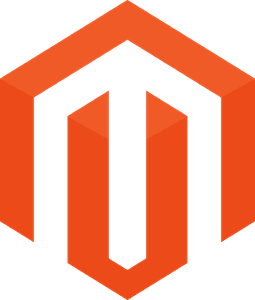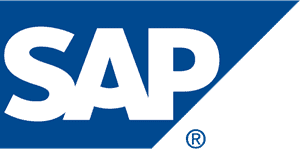Get ready to take your wholesale game to a whole new level. You want the best tools to crush your online sales. Well, I have pretty cool news waiting for you. I digitally scouted the best for you, and now I’m proud to present the crème de la crème—the 5 best wholesale ecommerce platforms to make your business boom like never before!
Whether you’re a seasoned pro or just starting, these platforms have your back. Loaded with killer features, they aid in smoothing operations, amplifying efficiency, and scaling like a boss.
The information we will delve into is for business owners wanting to take their company to the next level!
What Is Wholesale Ecommerce?
Businesses sell products in bulk quantities on wholesale e-commerce to other companies through online platforms. According to Grand View Research, this massive industry had sales of $9.2 trillion in 2023 alone.
I’ve been in the ecommerce game for over a decade and have seen firsthand how wholesale ecommerce has transformed businesses’ operations.
It’s not just about moving products anymore – building relationships, streamlining processes, and driving growth.
Retail vs Wholesale Ecommerce
Now, you might be wondering – what’s the difference between retail and wholesale ecommerce? It’s pretty simple.
Retail ecommerce is all about selling products directly to individual consumers, usually in small quantities. Think of your favorite online clothing store or electronics retailer – that’s retail ecommerce in action.
Wholesale ecommerce, on the other hand, is focused on selling products in bulk to other businesses. These businesses then resell the products to their customers through retail channels or other companies.
Benefits of Wholesale Ecommerce
So, why should you care about wholesale ecommerce? Well, let me tell you – the benefits are pretty impressive. For starters, wholesale ecommerce allows businesses to reach a wider audience and tap into new markets.
By selling products in bulk to other companies, you can expand your reach and grow your customer base exponentially. But that’s not all – wholesale ecommerce offers serious cost savings. You can often negotiate better prices with suppliers and manufacturers when selling products in bulk.
Plus, you can save on shipping and handling costs by consolidating orders and shipping in larger quantities. And let’s not forget about the time savings. With wholesale ecommerce, you can automate many manual product sales processes, like order processing, inventory management, and customer service (sales reps).
This frees up your time to focus on other aspects of your business, like marketing and product development.
Top Wholesale E-commerce Platforms
Shopify Plus might be your go-to platform if you’re an ecommerce enthusiast or a digital marketing lover looking to dive into wholesale online.
Understanding the right tools and platforms becomes crucial as we navigate the intricacies of starting and scaling an ecommerce business. Shopify Plus is a robust solution tailored for high-volume merchants seeking to expand their operations into wholesale.
Key Benefits
- Easily handles high traffic and large volumes of transactions, making it suitable for rapidly growing businesses.
- User-friendly interface with drag-and-drop functionality, reducing the need for extensive technical knowledge.
- Offers extensive customization options through themes and the ability to edit the code.
- Comes with built-in marketing tools, analytics, and various sales channels, including social media integration.
- Provides around-the-clock support to address any issues promptly.
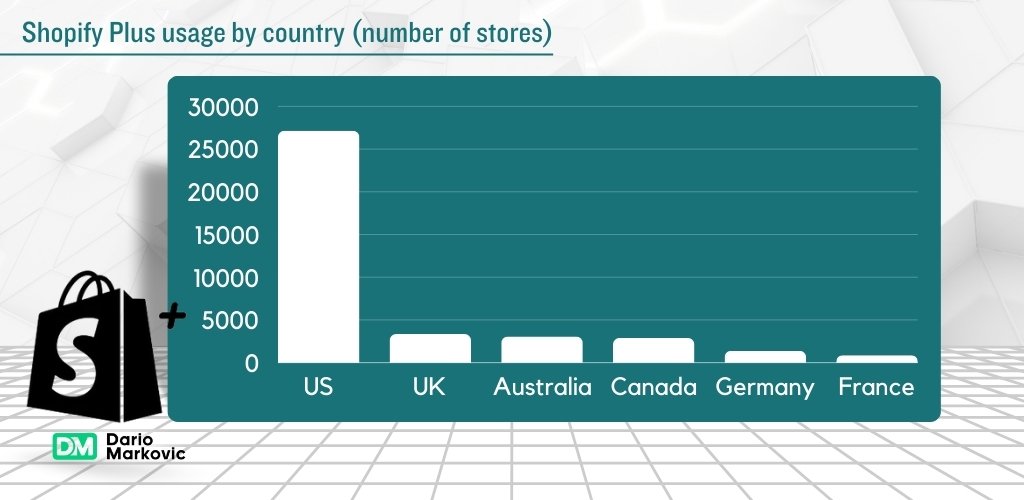
The transition from retail to wholesale can seem daunting, but with Shopify Plus, it’s streamlined and efficient. This platform offers unparalleled scalability, advanced customization options, and dedicated support for businesses ready to increase sales.
Product
Pros/Cons
Ratings
-
User-Friendly Interface:
Ease of use is at the heart of Shopify’s design philosophy. Even if you’re new to e-commerce platforms, setting up your wholesale channel is straightforward and intuitively navigable.
-
High Cost:
Shopify Plus is significantly more expensive than standard Shopify plans. The high monthly fees can be a significant disadvantage for smaller wholesalers or businesses just starting. The additional costs for premium apps and integrations can also add up quickly.
Value
4.0
Features
3.8
Performance
3.9
Ease of Use
4.9
Design & Themes
4.0
Integrations
4.6
4.8
Overall Score
User Rating
4.4
580 reviews
Pricing
-
Standard Setups and Integrations $2000/mo
-
$4800,000/mo sales $40,000/mo
Opinion Piece
Shopify is widely recognized for its user-friendly interface and extensive app ecosystem, making it an excellent choice for small to medium-sized businesses.
Their enterprise solution, Shopify Plus, caters to larger operations, but some may find the platform’s customization options limited compared to open-source solutions.
While Shopify offers strong customer support and built-in SEO features, the additional costs for apps and transaction fees can add up.
For ecommerce enthusiasts and digital marketing lovers looking to enter the wholesale market, BigCommerce stands out as a robust platform designed to meet their needs.
Key Benefits
- User-friendly interface with straightforward setup and management, suitable for non-technical users.
- Built-in SEO features and marketing tools to enhance online visibility and drive traffic.
- Supports businesses of all sizes, from small startups to large enterprises.
- Offers a variety of customizable templates and the ability to edit HTML and CSS for more advanced customization.
- Integration with multiple sales channels, including social media, marketplaces, and POS systems.
BigCommerce offers features explicitly tailored for wholesalers that streamline operations and enhance customer satisfaction.
Product
Pros/Cons
Ratings
-
Bulk Pricing Options:
With BigCommerce, setting up tiered pricing structures is effortless. This allows businesses to offer discounts on bulk purchases easily, encouraging larger orders and fostering customer loyalty.
-
Limited Native B2B Features:
While BigCommerce offers some B2B functionalities, many advanced wholesale features require third-party integrations or custom development, which can increase complexity and costs.
Value
4.0
Features
3.8
Performance
3.9
Ease of Use
4.9
Design & Themes
4.0
Integrations
4.6
4.4
Overall Score
User Rating
4.2
517 reviews
Pricing
-
Standard $29/mo
-
Plus $79/mo
-
Pro $299/mo
-
Enterprise Customer pricing
Opinion Piece
BigCommerce is known for its scalability and comprehensive built-in features. It offers a robust solution without any transaction fees and has strong SEO.
However, it sometimes offers limited customization options and has fewer themes than Shopify. BigCommerce is perfect for any growing business that wants flexibility in API integrations since it’s scalable.
Magento Commerce, now part of Adobe Commerce, is an open-source platform that offers unparalleled flexibility and customization options.
Magento Commerce is a robust choice, offering extensive features tailored for wholesale businesses.
Magento’s standout feature is its seamless integration capabilities with existing systems. Whether you’re looking to integrate ERP systems, order management tools, or customer relationship management (CRM) software, Magento Commerce makes it possible.
Its scalability ensures that the platform can grow with your business as it grows from a small operation to a large enterprise without skipping a beat.
Key Benefits
- Highly flexible platform with extensive customization options, allowing businesses to tailor the store to their specific needs.
- Capable of supporting large-scale businesses with high transaction volumes and complex requirements.
- Offers robust SEO tools to enhance search engine visibility and drive organic traffic.
- Large community of developers and a vast marketplace of extensions and plugins to extend functionality.
- Integration with multiple sales channels, including social media, marketplaces, and POS systems.
From custom pricing models unique to wholesale operations to personalized shopping experiences based on user data—Magento offers flexibility that other platforms struggle to match.
Product
Pros/Cons
Ratings
-
Digital Marketing Tools:
Leverage built-in SEO tools and integrations with leading digital marketing platforms to ensure your products are seen by potential customers who matter most.
-
Performance Issues:
Magento can be resource-intensive and needs proper optimization and high-quality hosting, potentially leading to slower site speeds and a poorer user experience.
Value
4.0
Features
3.8
Performance
3.9
Ease of Use
4.9
Design & Themes
4.0
Integrations
4.6
4.3
Overall Score
User Rating
4.0
504 reviews
Pricing
-
Average Gross Sales Revenue: <$1M <$22,000/Year
-
Average Gross Sales Revenue: $1M-$5M <$32,000/Year
-
Average Gross Sales Revenue: $5M-$410M <$49,000/Year
-
Average Gross Sales Revenue: $10M-$25M <$75,000/Year
-
Average Gross Sales Revenue: $25M+ <$125,000/Year
Opinion Piece
The major strengths of Magento Commerce lie in its depth of personalization and flexibility. On the other hand, its powerful inventory management and advanced SEO make it suitable for large and complex operations.
This highly technically demanding management and customization increase the development and maintenance costs. Moreover, hosting is not included, which adds to the general expense.
For ecommerce enthusiasts and digital marketing lovers venturing into the wholesale domain, selecting the right e-commerce platform is a pivotal decision.
Key Benefits
- Integrated with SAP's ecosystem, providing a complete suite of tools for managing the entire customer lifecycle.
- Advanced personalization capabilities to deliver targeted experiences based on customer behavior and preferences.
- Supports multiple languages, currencies, and international shipping options for global businesses.
- Strong B2B features including contract management, quoting, and account management.
- High performance and scalability for enterprises with complex and high-volume needs.
Among many options, SAP Commerce Cloud is an unparalleled choice for businesses aiming to scale up their operations efficiently.
Product
Pros/Cons
Ratings
-
Personalized Product Catalogs:
Tailor product offerings based on customer profiles or segments.
-
High Cost:
SAP Commerce Cloud involves substantial licensing fees, implementation costs, and ongoing maintenance expenses, making it more suited for large enterprises with significant budgets.
Value
4.0
Features
3.8
Performance
3.9
Ease of Use
4.9
Design & Themes
4.0
Integrations
4.6
4.2
Overall Score
User Rating
4.2
188 reviews
Pricing
-
Custom Quote Contact SAP
Opinion Piece
SAP Commerce Cloud serves large enterprises with strong and scalable e-commerce solutions; it easily integrates with the remaining enterprise solutions offered by SAP and offers advanced personalization and customer experience features.
This greatly scalable platform brings along complexities, high costs, and a high level of technical expertise required—which might be hard for some businesses—besides, the implementation times can be pretty long.
For ecommerce enthusiasts and digital marketing lovers venturing into wholesale, selecting the right platform is pivotal.
Key Benefits
- Integration with Salesforce’s CRM and other cloud services for a cohesive customer experience.
- Leveraging Salesforce's AI, Einstein, for advanced personalization and predictive analytics.
- Seamless integration across various sales channels, including online, mobile, and in-store.
- Cloud-based infrastructure ensures high availability and scalability for growing businesses.
- Access to a wide range of third-party apps and extensions through the Salesforce AppExchange.
Salesforce Commerce Cloud is a leading choice for scaling its operations efficiently.
This robust platform offers features to streamline business processes, enhance customer experiences, and boost sales through innovative digital marketing strategies.
Product
Pros/Cons
Ratings
-
Personalized Product Catalogs:
Tailor product offerings based on customer profiles or segments. -
Bulk Orders Processing:
Streamline large orders effortlessly with intuitive interfaces.
-
Limited out-of-the-box B2B features:
Salesforce Commerce Cloud may need more essential B2B functionalities, necessitating costly customizations or third-party integrations.
Value
4.0
Features
3.8
Performance
3.9
Ease of Use
4.9
Design & Themes
4.0
Integrations
4.6
4.4
Overall Score
User Rating
4.3
20,027 reviews
Pricing
-
Starter Suite 25 €
-
Professional 80 €
-
Enterprise 165 €
-
Unlimited 330 €
-
Einstein 1 Sales 500 €
Opinion Piece
Demandware, now known as Salesforce Commerce Cloud, is a cloud-based solution. It scales very well and integrates easily with all of Salesforce’s CRM offerings and its other cloud services. It has strong marketing and personalization tools, with deep third-party integrations for advanced customer insights and analytics.
On the negative side, it is pretty expensive, which prices out small to mid-sized businesses, and its pricing structure is rather complex. Personalization requires technical expertise.
Types of Wholesale Ecommerce Businesses
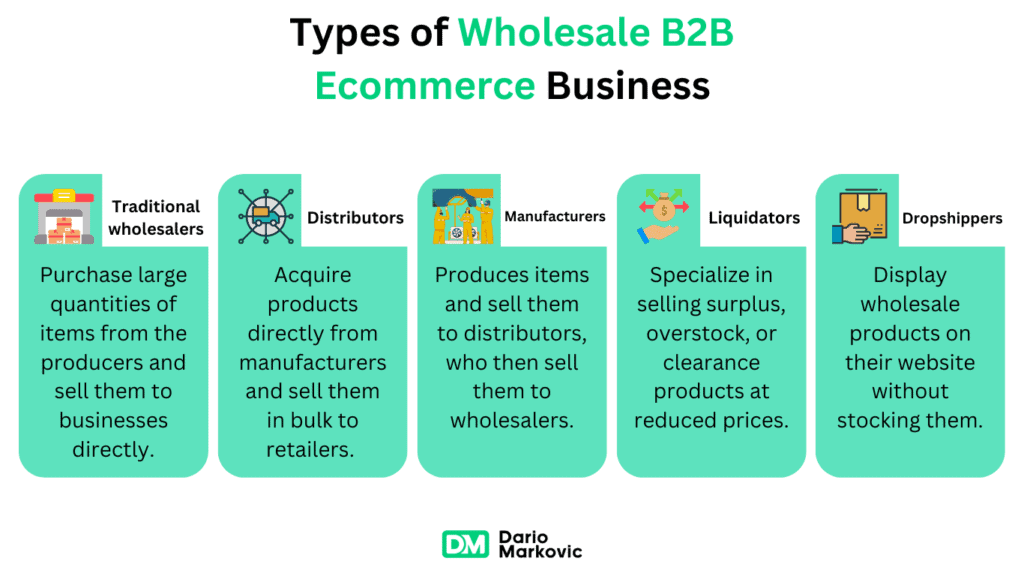
Now that you know the basics of wholesale ecommerce, let’s dive into the different types of businesses that operate in this space.
Manufacturers
First up, we have manufacturers. These are the businesses that create the products that are sold through wholesale ecommerce channels.
Manufacturers often sell their products directly to wholesalers or distributors, who then resell them to other businesses or consumers.
Distributors
Next, we have distributors. These businesses act as intermediaries between manufacturers and retailers, buying products in bulk from manufacturers and reselling them to retailers or other businesses.
Distributors often specialize in specific product categories or industries and may offer additional services, such as product training or marketing support.
Dropshippers
Dropshippers are another type of wholesale ecommerce business. These businesses don’t hold any inventory themselves – instead, they act as a middleman between manufacturers and retailers.
When a retailer orders from a drop shipper, the drop shipper orders from the manufacturer, who ships the products directly to the retailer’s customer.
Liquidators
Liquidators specialize in buying and reselling excess inventory or discontinued products. These businesses often buy products in bulk at a discount and then resell them to other companies or consumers at a markup.
Importers and Exporters
Finally, we have importers and exporters. These businesses specialize in buying products from manufacturers in one country and reselling them to businesses or consumers in another country.
Importers and exporters often have to navigate complex regulations and logistics challenges, but they can also tap into lucrative international markets.
Essential Features of a Wholesale Ecommerce Platform
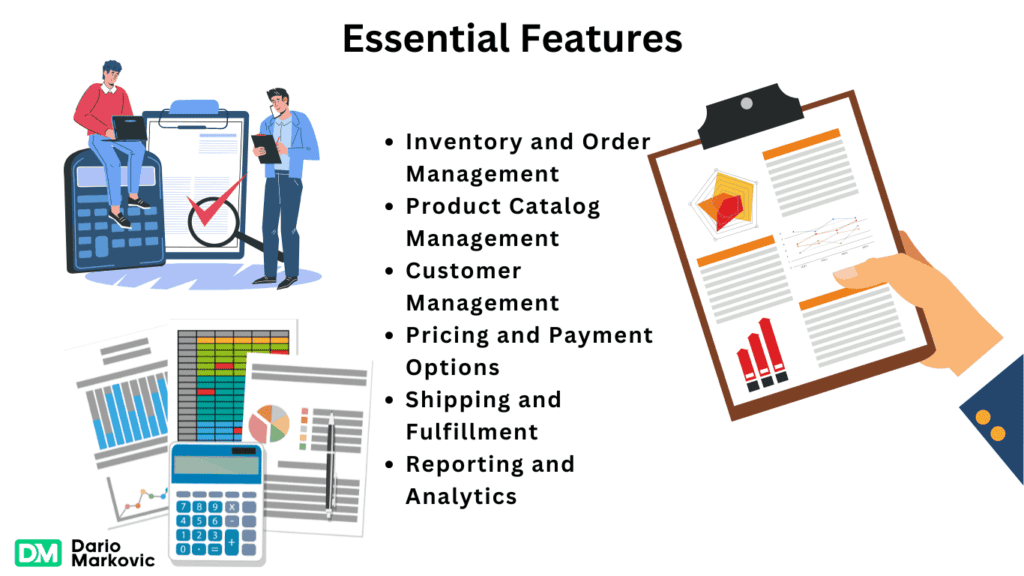
If you’re considering starting a wholesale ecommerce business, one of the first things you’ll need to do is choose the right platform. And let me tell you, not all ecommerce platforms are created equal.
When you’re evaluating wholesale ecommerce platforms, there are a few key features you’ll want to look for:
Inventory and Order Management
First and foremost, you’ll need a platform with robust inventory and order management capabilities. This means the ability to track inventory levels in real time, set reorder points, and manage orders from multiple sales channels.
Trust me; there’s nothing worse than overselling a product because your inventory levels weren’t synced across all your sales channels.
A good wholesale ecommerce platform will help you avoid these headaches and keep your operations running smoothly.
Product Catalog Management
Next, you’ll want a platform with powerful product catalog management features. These include creating detailed product descriptions, adding multiple product images, and organizing products into categories and subcategories.
A well-organized product catalog not only makes it easier for your customers to find what they’re looking for, but it also helps with SEO and can drive more traffic to your site.
Customer Management
Customer management is another critical feature of any wholesale ecommerce platform. You’ll need the ability to create and manage customer accounts, set custom pricing and payment terms, and provide personalized service to your top customers.
The best wholesale ecommerce platforms will also offer tools for segmenting your customer base and targeting them with personalized marketing campaigns and promotions.
Pricing and Payment Options
Flexible pricing and payment options are a must-have for any wholesale ecommerce business. You’ll need the ability to set custom price lists for different customer groups, offer volume discounts, and accept various payment methods, including credit cards, PayPal, and bank transfers.
Some wholesale ecommerce platforms even offer built-in financing options, which can be a great way to help your customers manage their cash flow and make larger purchases.
Shipping and Fulfillment
Finally, you’ll want a wholesale ecommerce platform with robust shipping and fulfillment capabilities. This includes calculating shipping rates based on weight, dimensions, and destination and integrating with popular shipping carriers like UPS and FedEx.
Some platforms also offer built-in order fulfillment services, which can be a great option if you don’t have the space or resources to handle fulfillment in-house.
Reporting and Analytics
Last, you’ll want a wholesale ecommerce platform with robust reporting and analytics tools. This includes tracking key metrics like sales, customer acquisition costs, and average order value and generating custom reports and dashboards.
The insights you gain from these reports can help you make data-driven decisions about everything from product development to marketing strategy, ultimately driving your business’s growth.
Key Takeaway:
Wholesale ecommerce lets you sell big to other businesses online, transforming how companies grow and operate. It’s not just about selling; it’s about building relationships and saving time and money.
With the right platform, you can efficiently manage inventory, orders, customers, and shipping while tapping into new markets.
Choosing the Best Wholesale Ecommerce Platform for Your Business
Choosing the right wholesale ecommerce platform is a big decision that should not be taken lightly. Trust me, I’ve been there. It’s easy to get overwhelmed by all the options and features.
Assessing Your Business Needs, Scalability and Growth, Integration Capabilities, Ease of Use, Customer Support, Pricing and ROI.
The key is to start by assessing your business needs. What are your goals? What features are non-negotiable? How much can you realistically afford to invest?
Scalability and growth potential are also crucial factors to consider. You want a platform that can grow with your business, not hold you back. Integration capabilities are another big one.
Can the platform seamlessly integrate with your existing systems and management tools? This can save you a ton of headaches down the line. Ease of use is often overlooked, but it’s so important.
You want a platform that’s intuitive and user-friendly, both for your team and your customers. Customer support is another make-or-break factor.
When issues arise (and they will), you want to know that you have a reliable support team in your corner. And, of course, there’s the bottom line: personalized pricing and ROI.
It’s not just about the upfront costs but also the long-term value and return on investment. By carefully weighing these factors, you can narrow your options and choose the platform that best fits your unique business needs.
Implementing and Optimizing Your Wholesale Ecommerce Strategy
Choosing the right platform is just the first step. Now comes the real work: implementing and optimizing your wholesale ecommerce strategy.
Setting Up Your Online Store, Optimizing Product Listings, Marketing and Promotion, Streamlining Operations, Measuring Success and Making Improvements
Setting up your online store can be daunting, but it’s doable with the right platform and a clear plan. Focus on creating a user-friendly interface, optimizing your product listings, and ensuring your branding is on point.
Marketing and promotion are key to driving traffic and sales. Leverage social media, email marketing, and paid advertising to get the word out about your store.
Streamlining operations is crucial for success. Look for ways to automate processes, improve customer service, and optimize fulfillment and shipping strategies.
And don’t forget to measure your success and continuously make improvements. Use analytics and customer feedback to identify areas for optimization and growth.
Some ecommerce platforms include advanced reporting and analytics tools that can give valuable insights into your business performance.
Others include features like real-time shipping rates and order tracking to help you provide a seamless customer experience.
The key is to stay agile and adaptable, always looking for ways to improve and grow your business. With the right platform and strategy, the sky’s the limit for your wholesale ecommerce success.
Key Takeaway:
Dive into wholesale ecommerce with platforms like Shopify Plus and BigCommerce, designed to scale your business.
Focus on features like custom pricing, easy integration, and user-friendly interfaces. Choosing the right platform is just the start; optimizing your online store and marketing strategy is key to success.
With the right platform, you can efficiently manage inventory, orders, customers, and shipping while tapping into new markets.
Dario's Conclusion
That was quite a journey through wholesale ecommerce platforms! I hope you feel pumped and ready to advance your online business.
Remember, choosing the best wholesale ecommerce platform is all about finding the perfect fit for your unique needs. Whether you’re prioritizing advanced inventory management, customizable storefronts, or seamless integrations, there’s a platform with your name written all over it.
So, take a deep breath, review your options, and trust your gut. With the right wholesale ecommerce platform by your side, you’ll be unstoppable. The sky’s the limit, my friend – go out there and make your ecommerce dreams a reality!
FAQ
It’s a digital solution to help businesses buy or sell wholesale products online. Put differently, this e-commerce platform assists wholesale transactions between wholesalers and retailers or other companies in large volumes.
Criteria for selecting the best wholesale e-commerce platform would be user-friendliness, scalability, integration ability, payment methods, safety features, and good customer support. Popular platforms include Shopify Plus, BigCommerce, and Magento.
A wholesale e-commerce platform will help you simplify your ordering process, eliminate manual errors, enhance inventory management, acquire important customer insights, and increase the efficiency of all your business processes.
Mobile compatibility is an important constituent of the wholesale e-commerce platform, ensuring one can log in, view products, and place orders easily through mobile devices. This adds to the user experience.
When selecting a wholesale ecommerce platform, look for the following key features:
- Bulk pricing and tiered pricing options
- Customizable product catalogs and pricing lists
- Secure login and authentication for wholesale customers
- Integration with existing inventory management and ERP systems
- Support for multiple payment gateways and payment terms
- Reporting and analytics for sales, inventory, and customer behavior
- Mobile optimization and responsive design
- Support for multiple languages and currencies
- Scalability and flexibility to accommodate business growth
Some of the best wholesale ecommerce platforms for business include:
- Shopify Wholesale: A wholesale ecommerce platform built on top of Shopify, offering customizable product catalogs, tiered pricing, and integration with existing Shopify stores.
- BigCommerce Wholesale: A wholesale ecommerce platform that offers bulk pricing, customizable product catalogs, and integration with existing BigCommerce stores.
- WooCommerce Wholesale: A wholesale ecommerce plugin for WooCommerce, offering bulk pricing, customizable product catalogs, and integration with existing WooCommerce stores.
- Magento Wholesale: A wholesale ecommerce platform built on top of Magento, offering customizable product catalogs, tiered pricing, and integration with existing Magento stores.
- TradeGecko: A cloud-based wholesale ecommerce platform that offers inventory management, order management, and shipping integration.
- Zoho Commerce: A wholesale ecommerce platform that offers customizable product catalogs, tiered pricing, and integration with existing Zoho ERP and CRM systems.
When choosing best wholesale ecommerce platforms, consider the following factors:
- Your existing ecommerce platform or ERP system
- Your product catalog and pricing structure
- Your target audience and customer base
- Your sales and marketing strategies
- Your budget and resource constraints
- The scalability and flexibility of the platform
- The level of customization and integration required
- The customer support and training provided by the platform
To set up a wholesale ecommerce platform for your business, follow these steps:
- Choose a wholesale ecommerce platform that meets your business needs
- Set up your product catalog and pricing structure
- Configure your payment gateways and payment terms
- Integrate with your existing ERP, CRM, and inventory management systems
- Customize your storefront and user interface
- Test and launch your wholesale ecommerce platform
- Train your staff and provide customer support
Some common challenges faced by businesses using wholesale ecommerce platforms include:
- Managing complex pricing and inventory structures
- Integrating with existing systems and infrastructure
- Providing effective customer support and training
- Managing and fulfilling large and complex orders
- Maintaining data accuracy and consistency
- Ensuring scalability and flexibility as the business grows.




